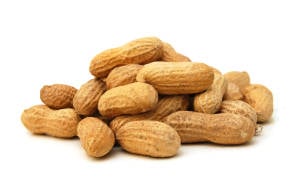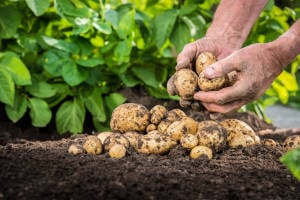Kitniot, often translated as legumes, refers to all types of grains and beans that have a characteristic in common with leavened grain products.
By Rabbi Ari Enkin, Rabbinic Director, United with Israel
What’s all this about “Kitniot” and Ashkenazi Jews?
According to Torah law, Jews may not own, eat, or derive any benefit from chametz on Passover. Chametz is defined exclusively as leaven products made from wheat, barley, spelt, oats, and rye. These are also the only grains that can be used to make matzah.
It would appear that all other grains, such as rice, corn, dried beans, millet, lentils and the like, are permissible to eat on Passover. But as we will see, this may not be the case.
Over 700 years ago, Ashkenazi Jews took upon themselves the restriction against eating any type of kitniot. Kitniot, often translated as “legumes,” refers to all types of grains and beans that have a characteristic in common with the chametz grains.
For example, since rice and corn can be made into flour and bread (or even a type of matzah for that matter!), they are similar to chametz in both their appearance and the way they are used, and are therefore forbidden accordingly.
In fact, although kitniot are not mentioned by name in the Talmud, the Talmud does discuss banning non-chametz grains that are similar to chametz, as it says: “Rabbi Yochanan ben Nuri prohibits rice and millet because it is close to leaven.” (Pesachim 35a).
Another reason why kitniot were forbidden was because they were frequently stored together with chametz grains.

Peanuts are an example of kitniyot. (shutterstock)
Today, the list of kitniot includes many more items than one may have expected. For example, peas, caraway, fennel seed, mustard, garlic, corn, soybean and peanut are all considered to be kitniot and are not eaten by Ashkenazi Jews on Passover.
Some authorities allow eating products that have been totally transformed from their original kitniot state.
In today’s world of modern technology, food can be transformed into entirely new items. For example, citric acid, ascorbic acid and NutraSweet sweetener are all corn based and corn derived…kitniot!
However, since the original item (corn) is unrecognizable, some authorities allow these kitniot derivatives to be consumed on Passover.
Potatoes may very well be the most interesting kitniot-related issue. As we know, potatoes are a staple of Passover! Everything on Passover has potato starch in it – cakes, cookies, matza balls, and more! But potato starch is incredibly similar to the flour of chametz grain!
So why are potatoes and potato starch permitted on Passover?
It is explained that potatoes are permitted on Passover because when the ban on kitniot was enacted in Europe, potatoes were not yet known!
As a general rule, legumes and grains that were unknown when the ban on kitniot was enacted are not included in the ban. This is why many authorities permit the consumption of peanuts as well!

Potatoes – a Passover staple. (shutterstock)
Another new grain that could be in the same boat as potatoes is quinoa. Most authorities rule that quinoa is kosher for Passover. This is because it has been determined by both rabbis and scientists that quinoa is a distinct grain, unrelated to chametz and kitniot.
It is a member of the “goose foot” family, which includes sugar beets and beet root, both of which have always been permitted on Passover.
Although Ashkenazi Jews do not eat kitniot, there is no need to sell or otherwise dispose of kitniot before Passover. In fact, Ashkenazi Jews may even cook kitniot on Passover should one who is ill require it.
Furthermore, there were periods in Jewish history when food was scarce, and in such places the rabbis lifted the ban on kitniot in order to make additional food available for consumption.
Sephardic Jews have minimal or no kitniot restrictions on Passover. Nevertheless, there are some Sephardic communities where the ban on kitniot is observed. One will also find Sephardic communities where corn and rice are not eaten, but all other kitniot are permitted.
As with all such customs in Judaism, the family generally follows the father’s tradition.


